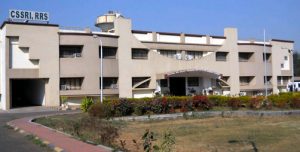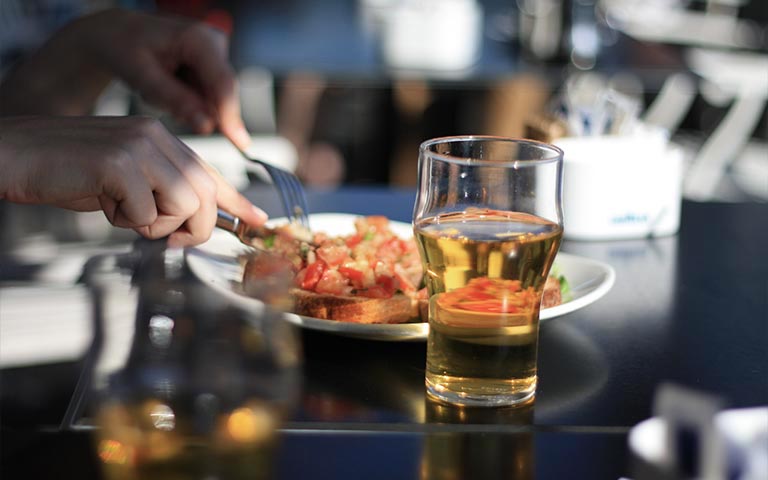ed mattis ut ligula quis ultricies. Integer vel condimentum enim. Praesent sed aliquet dolor.
1 Live Event on technology – 2016-07-21 5:00pm, New Hall
ed mattis ut ligula quis ultricies. Integer vel condimentum enim. Praesent sed aliquet dolor.
Our Technology

About Centre
Salinity of land and water is a major constraint in our ability to ensure food security. Salinity problems are increasing at an alarming rate, more particularly in the irrigation command areas. About 2.22 Mha of land in Gujarat state alone has already gone out of cultivation due to water logging and salinity. Black cotton soils (Vertisols) due to their inherent physicochemical characteristics such as poor hydraulic conductivity, low infiltration rates, high clay content and narrow workable moisture range pose serious problems for arable farming. Seawater ingress and the marine influence create high salinity situations in the coastal regions. Resource characterization, generating data base on salinity, evolving technically feasible agro-management strategies and their dissemination to the end-users/clients are the vital needs for bringing these problematic soils under production.
Setup
The station started functioning at Bharuch since April 2003 and the Research farm measuring about 23.5 ha at Samni village (Amod taluka) was acquired on lease from the State Government in 2001, with true Vertisols falls at the periphery of Bara tract (21o40´ to 22o13´ N latitude and 72o32´ to 72o55´ E longitude) with salinity problems prevailing at the sub-surface horizons of soil profile. The Station has fully functional laboratory, with facilities for soil, water and plant analyses and research farm for conducting field trials. The Station has been working on evolving technologies for addressing the issues pertained to management of salinity of soils and irrigation waters and also using industrial wastes in agriculture. The mandate of the Station is given below.
Mandate
- To undertake basic and applied research on
- Survey and characterization of salt affected Vertisols and poor quality waters;
- Generating cost-effective technologies for the management of salt affected Vertisols;
- Evolving strategies for efficient use of salty waters for crop production;
- To impart training to the farmers and other user-agencies;
- To provide consultancy in the management of salt affected Vertisols.
Thrust areas
-
Identification and characterization of salt affected Vertisols and associated soils and their management;
-
Use of poor quality waters for crop production;
-
Evaluation of arable crops for salinity and water logging tolerance;
-
Drainage in salt affected Vertisols;
-
Evaluation of non-conventional species and halophytes for Biosaline agriculture
Technology dissemination
The Station since its inception 1989 has come out with the following technological interventions for the management of soils with the problems of inland salinity, coastal salinity and water logging in Gujarat. The major aspects covered include:
Identification of constraint parameters with respect to crop production;
Plan and promote efficient use of land and water resources for maximising crop production in saline environment.
Technology developed
-
Regreening highly saline black soils (ECe > 30 dS m-1) with economic halophytes Cultivation of Salvadora persica on highly saline black soils
-
Cultivation of dill (Anethum graveolens) on saline black soils:
-
Field crops for low to moderate saline soils (ECe, 4-8 dS m-1) –
Conjunctive use of saline water with surface water -
Forage grasses for moderately saline black soils (ECe, 8 – 16 dS m-1)
-
Saline Agriculture with halophytic grasses/ Jatropha curcas
-
Cotton-pulse intercropping for saline Vertisols of the Bara tract
Extension activities
- Developing rainwater harvesting structures in farmers’ fields
- Developing farm ponds at three locations
- Developing Salvadora nursery using saline water
- Biosaline agriculture of forage grasses
- Initiation of studies on farming system mode
-
Participation in the farmers’ meets and addressing the gathering on problems pertained to soil salinity and ways to manage them
Current programmes
-
Integrated farming system studies for maximizing on-farm productivity from saline Vertisols
-
Impact assessment of technological interventions in the Coastal saline areas of Gujarat State
-
Bioremediation and phytoremediation of coastal and inland saline Vertisols by halophilic microbes, fungi and halophytes/salt tolerant species.
-
Improved irrigation, ground water and multiple water use technologies for enhancing water productivity (FPARP II)
-
Screening of cotton accessions for salinity tolerance (RKVY Project)
-
Use of industrial effluent and biological sludge from the Nitro-ETP Plant of GNFC (Consultancy Project)
-
Use of industrial effluent from the Aniline_TDI Plant of GNFC (Consultancy Project)
-
Evaluation of interventions taken up by GSLDC for mitigating salinity in coastal areas of Gujarat (Consultancy Project from GSLDC)
Our Technology
About Institute
Central Soil Salinity Research Institute (CSSRI) is a premier research institute dedicated to pursue interdisciplinary research on salinity/ alkalinity management and use of poor quality irrigation waters in different agro-ecological zones of the country. The Govt. of India constituted an Indo-American Team to assist the Indian Council of Agricultural Research to develop a comprehensive water management programme for the country. As a follow up of these recommendations, it was decided to establish the Central Soil Salinity Research Institute under Fourth Plan period. The Institute started functioning at Hisar (Haryana) on 1st March, 1969. Later on, it was decided to shift this Institute to Karnal during October, 1969. In February 1970, the Central Rice Research Station, Canning Town, West Bengal was transferred to CSSRI, Karnal to conduct research on problems of coastal salinity. Another Regional Research Station for carrying out research on problems of inland salinity prevailing in the black soil region of western parts of the country started functioning at Anand (Gujarat) from February, 1989. As per recommendation of the QRT, the station was shifted from Anand to Bharuch in April 2003. Keeping in view the need of undertaking research for situations under surface drainage congestion, high water table conditions, relatively heavy textured soils, and indurated pan for managing alkali soils of Central and Eastern Gangetic Plains, another Regional Station was established during October, 1999 at Lucknow. The Coordinating Unit of AICRP on Management of Salt Affected Soils and Use of Saline Water in Agriculture is located at the Institute with a network of eight research centres located in different agroecological regions of the country (Agra, Bapatala, Bikaner, Gangawati, Hisar, Indore, Kanpur and Tiruchirapalli). The Coordinating Unit of AICRP on Water Management functioned at the Institute from early seventies till it was shifted to Rahuri (Maharastra) in 1990.
The Institute has grown into an internationally recognised esteemed centre of excellence in salinity research. Multidisciplinary research activities at the main institute are being strengthened through four research divisions The major research activities in the Division of Soil and Crop Management include preparation and digitization of database on salt affected soils besides periodic assessment of state of soil resources, developing technologies for the optimal management of gypsum amended alkali soils and the use of high RSC and saline waters for crop production. In the post reclamation phase, focus is on developing resource conservation technologies and development of farming system models for resource poor farmers. Agroforestry on salt affected soils is another area of focus besides the production and evaluation of bio-fuel and bio-energy efficient plants from salt affected soils. Development and propagation of individual farmer based groundwater recharge technologies, subsurface drainage for amelioration of waterlogged saline soils and decision support systems for ground water contaminations are some of the major issues being addressed in the Division of Irrigation and Drainage Engineering. Development of high yielding genotypes of rice, wheat and mustard tolerant to salinity, alkalinity and waterlogging stresses by following conventional breeding and modern molecular and physiological approaches are the major concerns of the Division of Crop Improvement. The Division of Technology Evaluation and Transfer is studying constraints in the adoption of land reclamation technologies and their impact on rural development.
The Institute has developed technologies for the reclamation of alkali soils with the addition of chemical amendments, reclamation of saline soils through subsurface drainage, development and release of salt tolerant crop varieties of rice, wheat and mustard and the reclamation of salt affected soils through salt tolerant trees. As such, nearly 1.5 million ha salt affected lands have been reclaimed and put to productive use. It has been estimated that reclaimed area is contributing more than 15 million tonnes foodgrains to the national pool. For waterlogged saline soils, subsurface drainage technology developed by the Institute initially for Haryana has been widely adopted and replicated in Rajasthan, Gujarat, Andhra Pradesh, Maharastra and Karnataka. About 60,000 ha waterlogged saline areas have been reclaimed using this technology. Artificial groundwater recharge is another area of interest for regions with depleting wter table. Besides, the technologies are also being developed for the salt affected areas of vertisols and coastal regions of the country. An International Training Centre to impart training at national and international level was established during 2001 under Indo-Dutch collaborative research programme. The Institute has developed Post Graduate Education programme in association with State Agricultural Universities (SAUs), Indian Institute of Technology (IIT) and other Universities, which has contributed to the growth of the Institute substantially.
The Institute has several national and international projects to fund its research and development activities. The notable programmes include: IRRI sponsored rice improvement programme, ACIAR sponsored programme for wheat improvement and IRRI, Philippines and CIMMYT, Mexico sponsored programme of cereal based systems. Central Soil Salinity Research Institute, Karnal has created state of the art facilities of sodic and saline micro-plots. Depending upon the objectives, desired stress levels of sodicity and salinity can be created in this facility for screening and better genotypic comparisons. Similarly, an environmentally controlled glass house facility is in place for growing crops and screening their genetic resources during off-season. This allows precise screening under saline hydroponics and advancement of breeding generation. Transgenic Green House facility has been created at CSSRI in the year 2008 under Indo-US ABSPII program. A central laboratory with modern equipments has been established at the institute.
Mandate
-
To undertake basic and applied researches for generating appropriate agrochemical/ biological/ hydraulic technologies for reclamation and management of salt affected soils and use of poor quality irrigation waters for sustainable production in different agro-ecological zones
-
Evolve, evaluate and recommend strategies that promote adoption of preventive/ ameliorative technology
-
To act as repository of information on resource inventories and management of salt affected soils and waters
-
To be a nucleus of researches on salinity management and co-ordinate/support the network of research with universities, institutions and agencies in the country for generating and testing location–specific technologies
-
To act as a centre for training in salinity researches in the country and region and provide consultancy
-
To collaborate with relevant national and international agencies in achieving the above goals
Vision
Productive utilization of salt affected soils and poor quality water resources in varying agro-ecological situations.
Mission
Generating new knowledge and understanding of the processes of reclamation and developing technologies for improving and sustaining productivity of salty land and waters.






